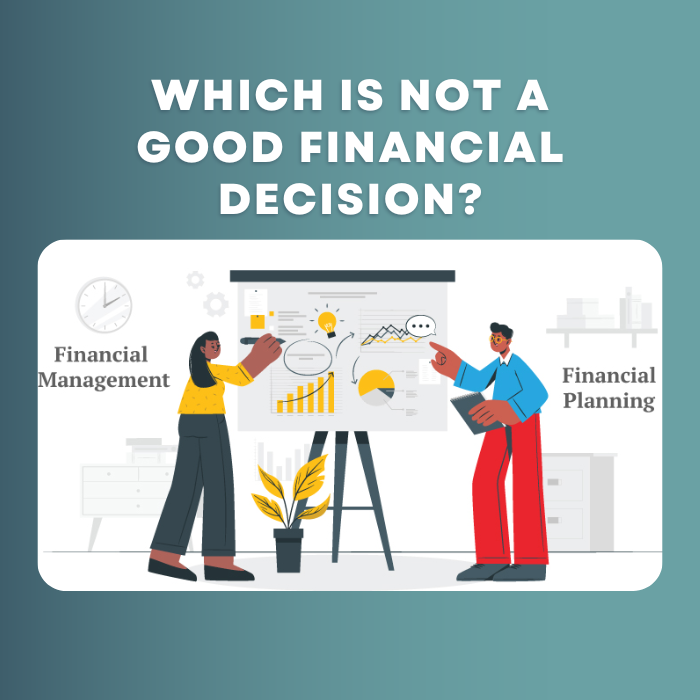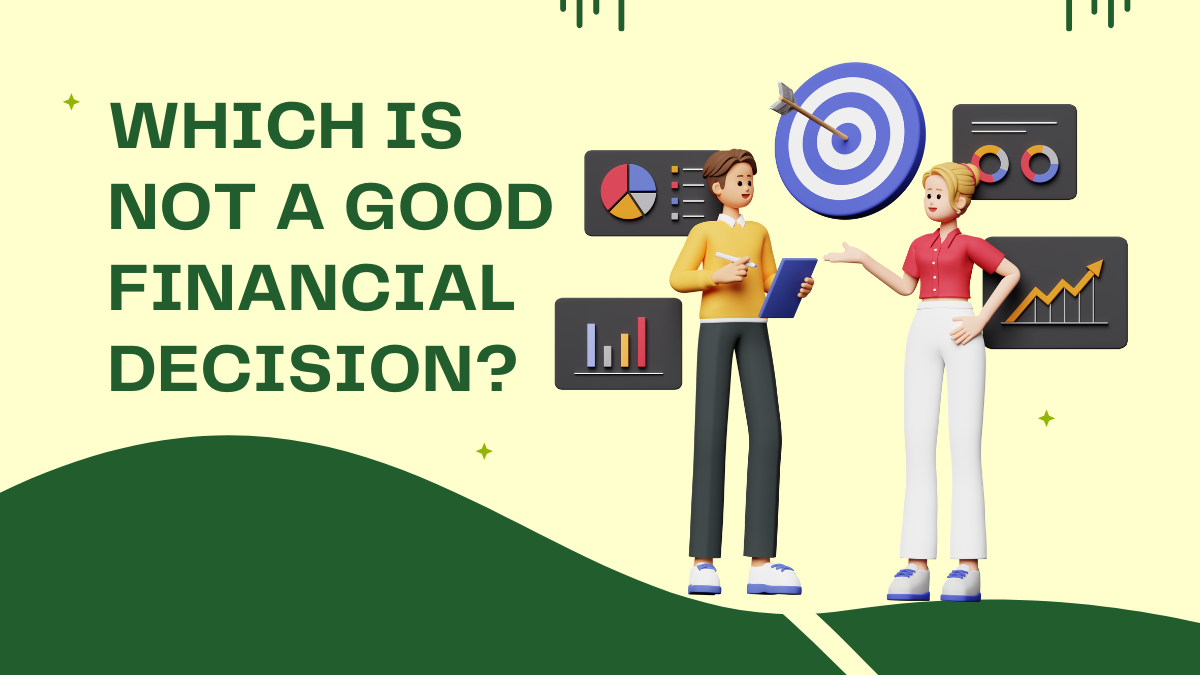Which Is Not A Good Financial Decision?
Are you tired of hearing conflicting advice about what constitutes a good financial decision? Look no further! In this blog post, we will dive deep into the question that looms over every dollar we spend: Which is not a good financial decision?
Whether you’re pondering whether to splurge on that dream vacation or debating whether to invest in the latest tech gadget, join us as we explore the ins and outs of making wise choices with your hard-earned money. Get ready for an eye-opening journey filled with practical tips, insightful anecdotes, and thought-provoking analysis – because when it comes to our finances, knowledge truly is power.
Table of Contents
What is a financial decision?
Financial decisions, like any other decisions in life, can be tough to make. They can have a big impact on your wallet and your overall financial situation. Here are five common financial decisions that are not always the best ones for you:
- Spending too much money on unnecessary items: Buying things just because they’re cheap doesn’t always make sense. If you can’t afford it, don’t buy it! Instead of wasting your money on things you don’t need, try using that money to save or invest.
- Buying high-risk investments: Investing isn’t always a surefire way to get rich quickly – especially if you’re investing in risky assets like stocks or bonds. If something goes wrong, you could lose a lot of money fast. Stick to safer options, like safe bonds or low-risk mutual funds, and you’ll be better off in the long run.
- Not saving enough for retirement: If you don’t set aside enough money each month to cover your long-term expenses (like retirement), you could wind up out of luck later on down the line. Make sure you’re saving at least 10% of your income each month – even if it feels like a lot at first – and you’ll be well on your way to a secure future.
- Taking out too many loans: When it comes to borrowing money, too much is never a good thing…especially when it comes to loans for unnecessary purchases If you can’t afford to pay back your loans right away, that money could quickly become a big financial burden.
- Not paying down your debt: If you have any debt – especially credit card debt – it’s important to make sure you’re working hard to pay it off as quickly as possible. That way, you’ll be reducing your overall interest payments and saving yourself a lot of money in the long run.

Types of financial decisions
There are many different types of financial decisions, which can be difficult to determine. Below is a list of some common types of decisions and their associated risks:
- Investment decisions: investing in stocks, bonds, or other securities can involve the risk of loss if the underlying value decreases.
- Credit decision: taking on too much debt can lead to bankruptcy if unexpected expenses increase or interest rates rise.
- Retirement plan choices: choosing an investment mix that matches one’s goals and risk tolerance can be important for retirement savings.
- Household budgeting: making wise choices about which expenses to cut and which to increase can save money over time.
- Spending decisions: whether to buy impulsively on a whim or wait for a better deal can have serious consequences for one’s finances.
- Tax planning: understanding one’s tax bracket, making efficient use of deductions and credits, and preparing for potential changes can save money in taxes.
The benefits and risks of making a financial decision
Making a financial decision can be daunting, but there are some key things to keep in mind if you want to make sound decisions. Here are some key benefits and risks of making a financial decision:
The benefits of making a financial decision include being able to manage your money more effectively and reaching your goals. Making smart choices about spending, borrowing, and saving can help you build a secure future.
However, there are also risks associated with making financial decisions. If you don’t have enough money saved up for an emergency fund, for example, you could end up in debt or homeless. Additionally, making rash or impulsive decisions can lead to bigger problems down the road. So it’s important to weigh the pros and cons of each option carefully before taking action.
How to avoid making bad financial decisions?
There are a lot of things people do that don’t make good financial decisions. Here are three to avoid:
- Overspending.
- Not saving enough.
- Not planning for retirement.
If you want to make good financial decisions, try to avoid making any of these mistakes.
Conclusion
When making financial decisions, it’s important to be aware of the risks involved. Some choices may seem like a good idea at the time but can end up costing you more in the long run. In this article, we’ve outlined some common bad financial decisions and what you should do if you find yourself struggling to make ends meet.
Remember: always talk to a financial advisor before making any big changes to your budget or spending habits. They can help guide you through the tough choices and keep you on track for long-term success.






